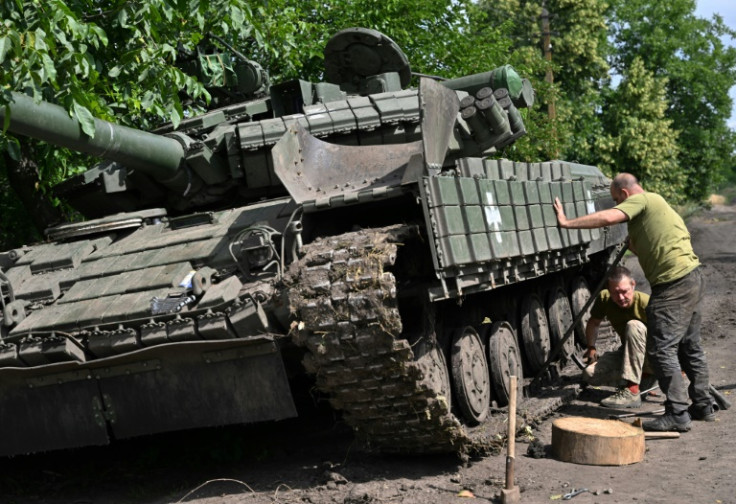Russia Claims 'Retaliatory Strike' In Odesa Amid Escalating Tensions After Kerch Bridge Attack

KEY POINTS
- Ukraine claimed responsibility for the attack on the bridge connecting the annexed Crimean peninsula to the Russian mainland
- Following the bridge attack on Monday, Moscow took the decision to withdraw from a year-old Black Sea grain agreement
- The United Nations expressed concern, warning that it could potentially lead to food crises and hunger on a global scale.
For the second consecutive night, Russia carried out an extensive aerial bombardment on the Ukrainian port of Odesa, a situation described by one Ukrainian official as "hellish." Dmitry Peskov, the spokesperson for the Russian government, said after the first assault on Odesa that it was a "retaliatory strike for the Crimean [Kerch] Bridge," Moscow's state-owned news agency RIA Novosti reported.
On Tuesday, the Russian Ministry of Defense announced that the Armed Forces of the Russian Federation had executed a "group retaliatory strike." They claimed to have used "high-precision" sea-launched weaponry to target facilities where they believed "terrorist attacks against Russia" were being planned. According to their statement, these alleged preparations were being conducted at a ship repair plant in Odesa Oblast, involving the use of unmanned surface vehicles. Odesa is one of Ukraine's main ports for exporting grain.
The occupying forces additionally claimed that they had targeted and destroyed fuel storage facilities near Mykolaiv and Odesa, containing approximately 70,000 tonnes of fuel. These facilities were supposedly being used to supply fuel to the Ukrainian Armed Forces' military equipment.
However, International Business Times cannot independently verify the claims.
A Ukrainian security official claimed Monday that Kyiv was responsible for the attack on the bridge connecting the annexed Crimean peninsula to the Russian mainland. This bridge holds immense significance for Russia as a vital supply line for its war effort in Ukraine, and it represents a significant personal project for President Vladimir Putin.
The Kerch Bridge, stretching nearly 12 miles and recognized as the longest in Europe, carries immense strategic and symbolic importance for Moscow. Monday's attack on the bridge marked the second incident since Russia commenced its invasion of Ukraine, with the previous one involving a fuel tanker explosion while crossing it in October.
Following the bridge attack on Monday, Moscow took the decision to withdraw from a year-old Black Sea grain agreement, which had previously enabled the secure export of Ukraine's grain. The United Nations expressed concern over this move, warning that it could potentially lead to food crises and hunger on a global scale.
"(They) are trying to scare the whole world, especially those who want to work for the grain corridor ... Ukraine, Turkey and the United Nations," Serhiy Bratchuk, spokesperson for the Odesa military administration, said in a voice message on his Telegram channel on Wednesday.
"But I think that all normal, rational people will look and say: Odesa was not afraid, is not afraid and will not be afraid — we will work."
From early Wednesday, air raid alerts were frequently activated across much of Ukraine as Russia carried out airstrikes on various locations, including a drone attack on Kyiv. The situation remained tense as the attacks continued intermittently throughout the day.
During the "massive attack" on Odesa, several residential buildings were severely damaged. As a result of the assault, at least six individuals, including a 9-year-old boy, sustained injuries caused by flying shards of glass and other objects. Oleg Kiper, the head of Odesa regional military administration, reported on these casualties and injuries in an official statement, highlighting the devastating impact on civilians in the area.
On Tuesday, Russia's Defense Ministry announced that it had launched attacks on military targets in two Ukrainian port cities overnight. They described these strikes as "a mass revenge strike" in response to the earlier attack on the Crimean Bridge. The situation escalated tensions between the two countries, raising concerns about further military actions in the region, NBC News reported.
© Copyright IBTimes 2024. All rights reserved.





















